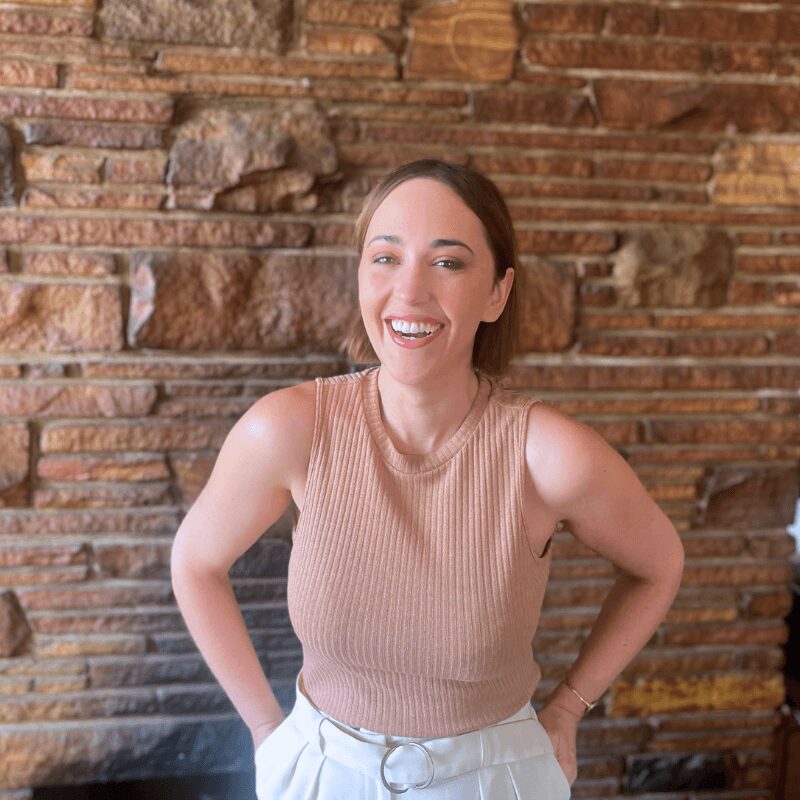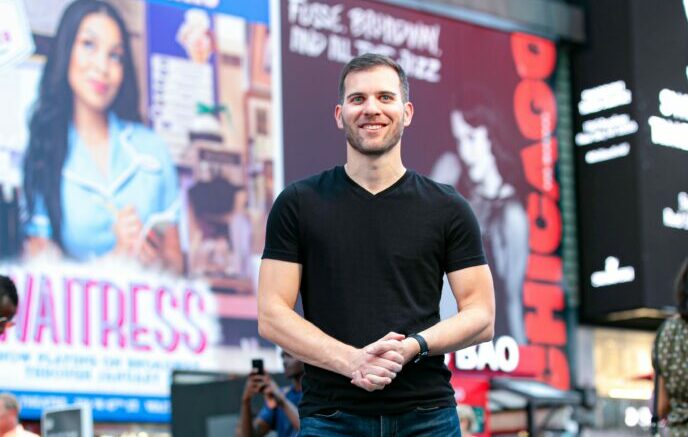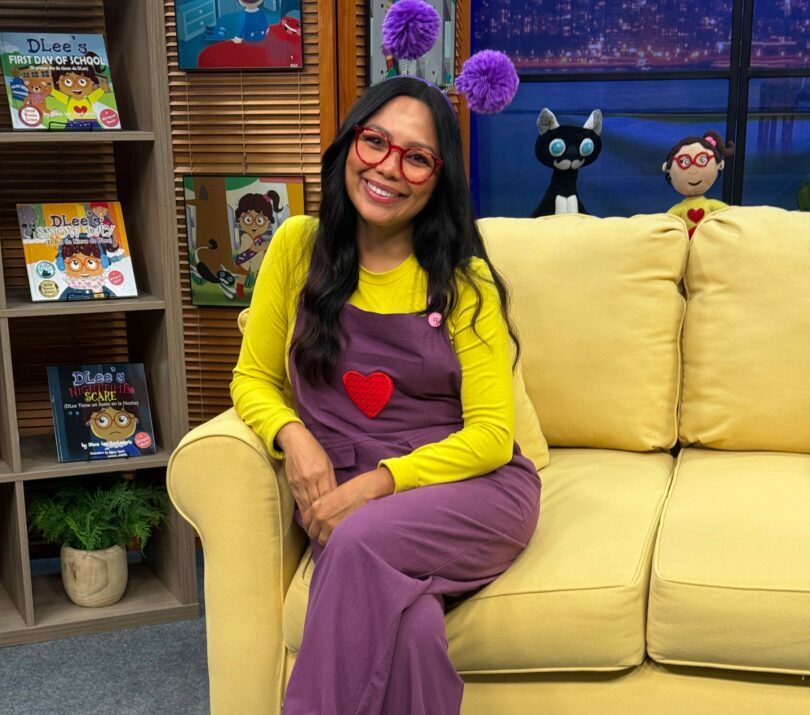Alright – so today we’ve got the honor of introducing you to Cheryl Groskopf. We think you’ll enjoy our conversation, we’ve shared it below.
Cheryl, first a big thank you for taking the time to share your thoughts and insights with us today. I’m sure many of our readers will benefit from your wisdom, and one of the areas where we think your insight might be most helpful is related to imposter syndrome. Imposter syndrome is holding so many people back from reaching their true and highest potential and so we’d love to hear about your journey and how you overcame imposter syndrome.
When I started my practice as a holistic, somatic therapist in Los Angeles, I often found myself questioning whether I was “good enough.” Even with all the training and experience, there was this lingering doubt that whispered, “What if you’re just fooling everyone?” It’s a feeling I know so many people can relate to, and it can feel overwhelming.
Rather than trying to fight imposter syndrome or “prove” myself, I got curious about it. I noticed how it showed up—not just in my thoughts but in my body. That familiar tightness in my chest, the anxious energy that made me want to overwork or overachieve—it all had a story to tell. Instead of pushing those feelings away, I let myself sit with them. I started to explore where they came from, and uncovered old patterns from childhood and outdated beliefs about what it means to be “enough.” Slowly, I began to realize that imposter syndrome wasn’t the enemy. It was a survival strategy I’d outgrown but hadn’t yet let go of.
This process didn’t just help me—it shaped how I work with my clients. So many people carry their own version of imposter syndrome, whether it looks like perfectionism, people-pleasing, or that constant fear of being “found out.” Through my practice—whether it’s anxiety therapy, attachment therapy, trauma therapy, or somatic therapy—I help clients explore these feelings and rewrite their inner narratives. Together, we work on understanding where those patterns come from and how to shift them toward something kinder and more sustainable.
If you’re navigating imposter syndrome, my advice is to approach it with curiosity. Give yourself space to explore where those doubts come from, gently challenge them, and remind yourself that your worth isn’t something you need to prove—it’s already there.
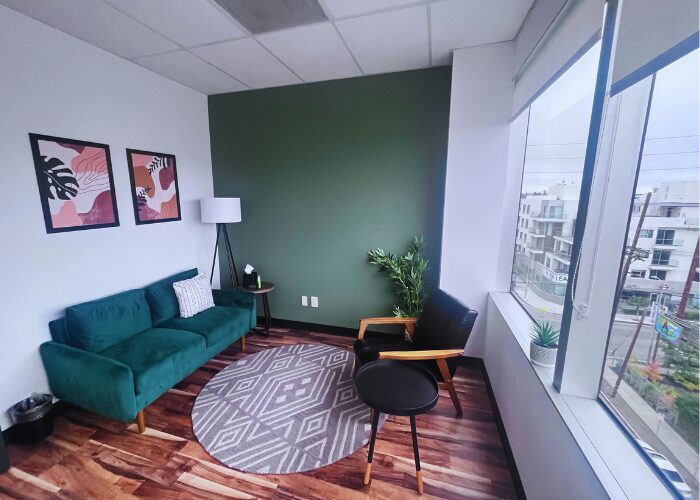
Great, so let’s take a few minutes and cover your story. What should folks know about you and what you do?
I specialize in helping anxious adults explore the patterns that keep them feeling stuck—whether it’s self-doubt, trauma, or insecure attachment in relationships. What excites me most about my work is seeing the lightness that clients begin to feel when they realize they don’t have to carry those patterns forever. Watching someone move from feeling disconnected and overwhelmed to feeling more secure, grounded, and in tune with themselves—that’s what keeps me passionate about what I do.
What makes my approach unique is that I don’t just focus on talking through issues—I work with the whole person. So much of what we carry lives in the body, not just the mind. My work is grounded in somatic therapy, which helps clients connect with how their emotions show up physically. I also integrate attachment theory and Internal Family Systems (IFS) to explore the deeper “why” behind the patterns that show up in their lives and relationships. But what matters most is helping clients find practical, tangible ways to start feeling better. It’s not about quick fixes—it’s about lasting change.
I work with a lot of people pleasers, perfectionists, and those who’ve always been the “strong one” in their relationships. Many of my clients grew up with emotionally unavailable or dismissive parents and have carried those dynamics into adulthood without realizing it. That might look like always putting others’ needs first, struggling with boundaries, or feeling overly responsible for how others feel. These patterns can be exhausting, and my goal is to help people break free from them so they can show up authentically in their relationships and lives.
Right now, I’m focused on expanding how I make these tools and insights accessible to more people. While one-on-one therapy is the heart of my practice, I’m also exploring workshops and resources that can help people connect with this work in new ways. At the end of the day, my goal is to help people not just survive but truly thrive—to feel more secure in themselves and create relationships that feel fulfilling and joyful.
If you’re in Los Angeles and looking for support, whether it’s anxiety therapy, trauma therapy, attachment therapy, or somatic therapy, I’d love to help. My practice, Evolution to Healing Psychotherapy, is all about creating a safe, supportive space where you can heal and grow at your own pace. You don’t have to keep navigating life feeling stuck or overwhelmed—you deserve to feel at peace and fully yourself.

If you had to pick three qualities that are most important to develop, which three would you say matter most?
Looking back, three things have made the biggest impact on my journey: curiosity, empathy with boundaries, and understanding how emotions live in the body. These weren’t things I magically mastered—they came from a lot of trial, error, and learning along the way.
Curiosity has been an absolute game changer for me. Early on, I thought I needed to have all the answers, but I’ve learned that staying curious—about myself, my feelings, and my reactions—is far more powerful than pretending to “know it all.” When I approach challenges with curiosity instead of judgment, I discover so much more about myself and the people I work with. My advice? Get comfortable asking yourself questions like, “When did I start to feel this way?” or “What’s really going on here?” You don’t need to solve everything at once—just stay open to learning.
Empathy is another quality that’s been essential, but I’ve also had to learn how to balance it with healthy boundaries. As someone who feels deeply, it’s easy to take on other people’s emotions, but that’s not sustainable. Over time, I’ve realized that true empathy means being present for someone without losing myself in their experience (that’s actually enmeshment). If you’re working on this, start small—practice saying no when you need to or setting aside time to recharge. Boundaries aren’t about shutting people out. They’re actually about creating space for connection that doesn’t overwhelm you.
Finally, understanding how emotions live in the body has completely changed how I approach both my own challenges and my work with clients. Emotions don’t just exist in your head—they show up in your body, too. Stress might feel like tight shoulders or a racing heart, while calm might feel like a sense of lightness. Paying attention to those cues can help you process emotions more effectively. If you’re just starting out, take a moment to check in with your body during the day. It’s a simple practice, but it can make a big difference.
And if I could give one piece of advice to anyone starting their journey, it would be to take it slow. Growth isn’t a straight line—sometimes it’s messy, unpredictable, and often feels like two steps forward and one step back. But that’s part of the process. You don’t have to have it all figured out right away, and there’s no rush to “get it right.” What matters is that you stay open to learning and give yourself permission to make mistakes along the way. Some of the most valuable lessons come from moments when things feel unclear or even overwhelming.
It’s also important to remember that you don’t have to navigate this journey alone. Whether it’s seeking support through therapy, connecting with mentors, or finding community with people who understand your experiences, having someone in your corner can make all the difference. Asking for help isn’t a sign of weakness—it’s a sign of strength and self-awareness. The work of healing and growth takes time, but it’s absolutely worth it. Trust that you’re building something meaningful, even if it doesn’t always feel linear or obvious in the moment.
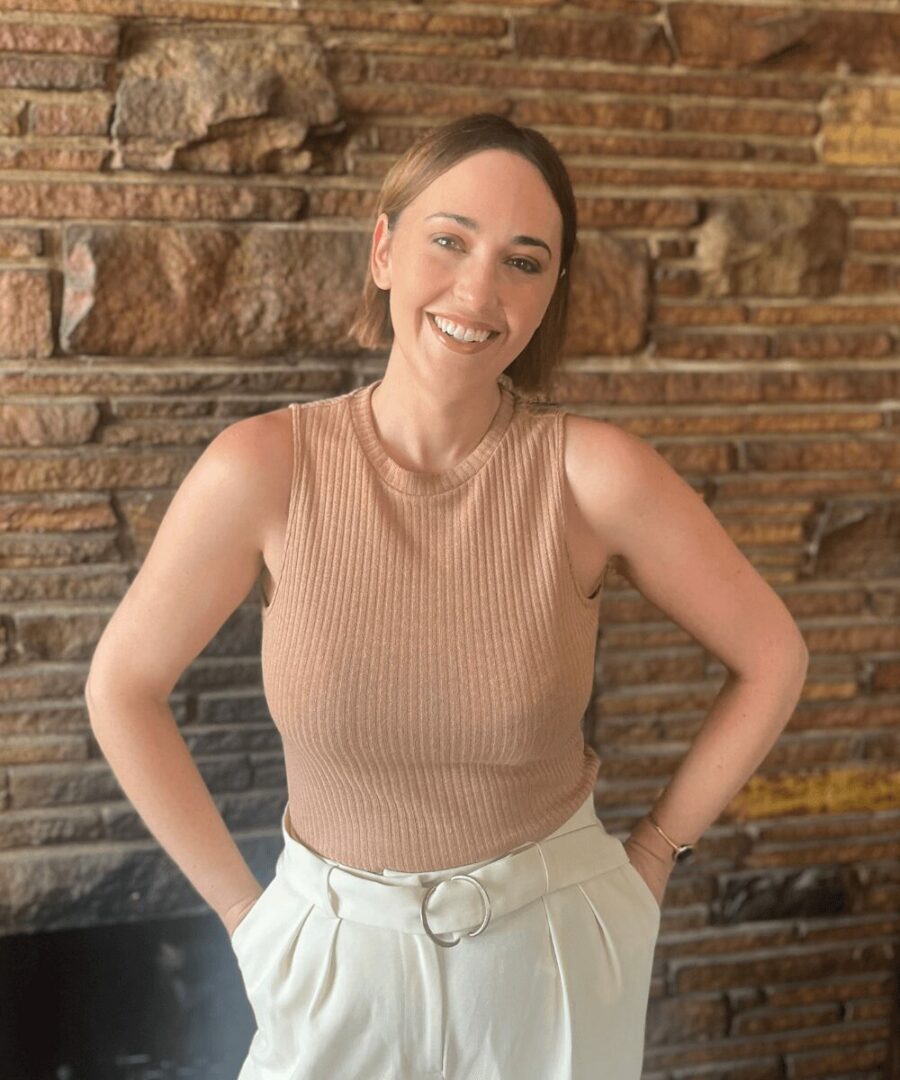
What do you do when you feel overwhelmed? Any advice or strategies?
When I feel overwhelmed (and yes, therapists feel it too!), my first step is always to pause and ground myself. Overwhelm is usually my body’s way of saying, “Too much, too fast!” so I know I need to slow down and reconnect with the present moment. For me, that often starts with my breath. I’ll place a hand on my chest or stomach, close my eyes, and take a deep inhale through my nose, followed by a slow exhale through my mouth. It’s simple, but it works. One technique I love is inhaling for four counts, holding for four, and exhaling for six—it’s a great way to calm the nervous system.
Once I’ve grounded myself, I try to break things down. Being overwhelmed can feel like everything needs to be done RIGHT now, which only makes it worse. I’ll write down everything swirling in my head—a brain dump—and then pick one small, manageable task to focus on. Even crossing off one thing can create a sense of relief and momentum. But I’ve also learned that sometimes it’s not about productivity—it’s about giving myself permission to step away. It’s often physical, too, so I might take a quick walk, stretch, or even just shake out my arms and legs to release some of that built-up tension. It might look silly, but it works.
Another strategy I rely on is checking in with myself. Overwhelm is often a sign that I’m neglecting basic needs—like rest, hydration, or even a break from screens. I’ll pause and ask, “What do I need right now?” Sometimes the answer is as simple as a glass of water or stepping outside for some fresh air. Those small, intentional acts can make a big difference.
Finally, I’ve learned to stop judging myself for feeling overwhelmed in the first place. It doesn’t mean I’m failing—it just means I’m human. When I can approach those feelings with compassion instead of self-criticism, they tend to pass more quickly. In my perspective, emotions are never something to fight, but something to listen to and work with.
If you’re feeling overwhelmed, my advice is to start small. Take a moment to pause, breathe, and focus on just one thing you can do right now to feel a little more grounded. And remember, there is support out there. Therapy—whether you’re working on anxiety, trauma, Complex-PTSD, or attachment insecurity—can provide tools and support to help you manage life’s stressors in a way that feels more sustainable. You’re allowed to take it one step at a time.
Contact Info:
- Website: https://www.evolutiontohealing.com/
- Linkedin: https://www.linkedin.com/in/cherylgroskopflmft
- Other: I’m taking an active break from social media, but continue to contribute to outlets such as Well+Good, TIME, Verywell Mind, MindBodyGreen, Parade and more.
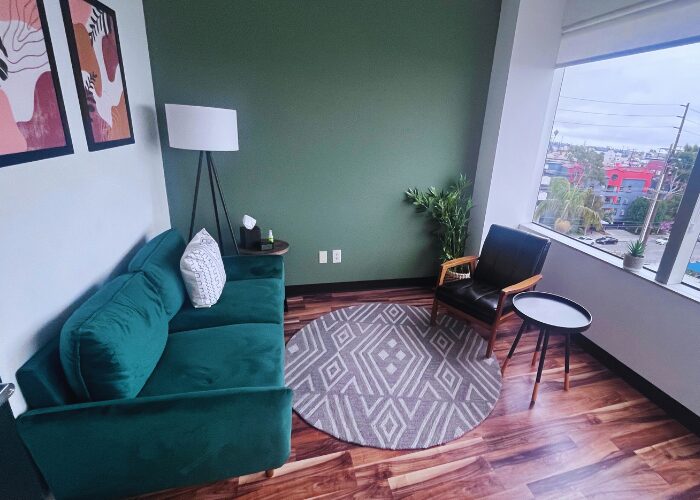
so if you or someone you know deserves recognition please let us know here.

